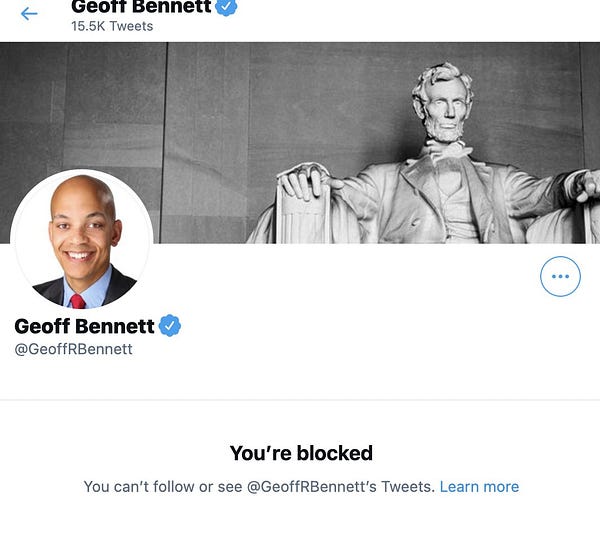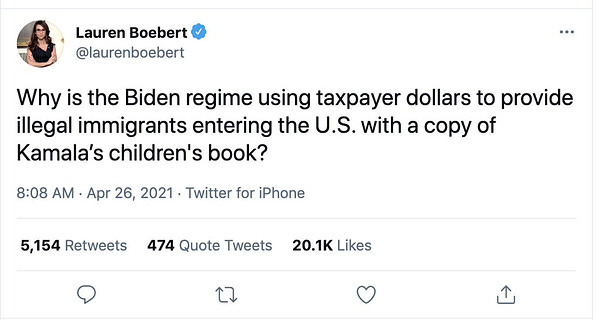We really are in the endgame, now
There is no fact checking anymore, despite a plethora of fact-checkers
Snopes is the original fact-checker, it must be said. Launched back in the dark ages of the internet (1994), Snopes concerned itself mostly with urban legends. There were no viral tweets or Facebook posts to worry about in those days. Hell, there was no Twitter or Facebook, no social media to speak of, just websites and messageboards. As such, one had to be actively looking for information—or actively participating in a messsageboard thread—to read news stories online. One didn’t just open up a browser, log on to a site and see a a cascade of people sharing stories and claims from stories. And media outlets didn’t have people actively sharing and promoting news/current events stories and videos. For that matter, politicians and pundits weren’t mouthing off online 24/7.
There was, however, fact-checking of the traditional sort, just like there was editing. Stories—at mainstream outlets, at any rate—went through a process. Edited and vetted, the major sources for news sought to “get it right” before they went to print, went on air, or even put it up online. But as the internet continued to evolve, as social media appeared and expanded, that changed.
Real-time analysis of events and claims—once the province of TV alone—became more and more common on the internet, leading to non-stop analysis of not only major events, but also of political minutiae, down to the facial expressions politicians made during debates and the like.
But for all of the action on social media, journos still needed to get paid. They couldn’t just give it all away in tweets, they needed to drive traffic to their websites by offering up intriguing snippets or headlines from pieces that they’d written. Indeed, it wasn’t enough for just journos to do this; the media orgs themselves needed a social media presence and social media managers to drive traffic to their way, because fewer and fewer people were buying newspapers and magazines. And in that regard, news orgs (and plenty of other companies) have a shit-ton of accounts on social media. If you stop and think about it for a minutes, it’s kind of hilarious. The whole premise of Facebook, for instance, is that it’s a people directory. To be a part of it, one is supposed to have an actual face. And Twitter was initially conceived as a platform for online group chats, between, you know, people.
Now, companies and other orgs are ubiquitous on social media. Media orgs like CNN have multiple accounts on these platforms; on Twitter, there’s @CNN, @CNNPolitics, @CNNBusiness, @CNNI, @CNNBrk, @CNNNewsroom, @CNNSport, @CNNStyle, and on and on and on. On top of that, all of the journos have their own accounts, as well, though at least they are actually people, even if the account is being used to pimp their stories and promote their “brand” (everyone has a brand, these day). The point is, social media is as much—if not more—business as it is social. As such, posting on social media by all of these various business entities is about driving traffic above all else, making it perfectly appropriate to label their posts as clickbait, first and foremost.
Clickbait is generally understood to be a post or an ad that entices a viewer/reader to click on a link that leads to a site with subpar content, i.e. content that is misleading or not useful. Much of the clickbait on the internet involves using outright lies about products or pictures of attractive women in order to get clicks. And tweets, ads, or posts about news stories—according to the above definition—shouldn’t be “clickbaity,” given that they’re not supposed to be in the business of lying. And that’s because we assume major news orgs are factchecking the stories they are publishing.
But they’r not.
The latest example is a widely disseminated story about Rudy Giuliani and OAN (One America News Network) being warned on 2019 by the FBI that they were being used in a Russian disinformation campaign that targeted Joe Biden. The story has been discredited and the news orgs who ran with it—WaPo, the NYT, NBC News—have been forced to eat crow:
The Washington Post, The New York Times, and NBC News on Saturday issued significant corrections, retracting earlier reporting that said Rudy Giuliani had been directly warned by the FBI that he was the target of a Russian disinformation campaign.
The stories came out after Giuliani's office and residence were raided by the FBI on Thursday. The searches were linked to a criminal probe of the former mayor's business dealings in Ukraine and resulted in the seizure of several communications devices.
"An earlier version of this story, published Thursday, incorrectly reported that One America News was warned by the FBI that it was the target of a Russian influence operation," read the correction by The Post, which first reported the news. "That version also said the FBI had provided a similar warning to Rudolph W. Giuliani, which he has since disputed."
"This version has been corrected to remove assertions that OAN and Giuliani received the warnings," the correction added.
Of course, the corrections came after the stories were up online for several days, after they had been shared countless times by not only everyday twitter users—and by everyday users on other platforms—but also by major journos, pundits, and orgs. Some of the people who shared what can only be described as an outright lie have offered mea culpas and deleted their offending tweets or posts, but many more have not. Indeed, Glenn Greenwald took it upon himself to notify a number of journos that they shared a lie. Few did anything about, one responded by blocking Greenwald on twitter (there’s a real champion of the 4th Estate, eh?):



To be fair, I believe that one journo Greenwald notified—Glenn Kessler at WaPo—actually did delete the offending tweet:


Of course, one might fairly not that the offending tweet was up for a full three days, that it was retweeted 29 times (did Kessler notify all the retweeters?), and finally that Kessler is, in fact, the official fact-checker for WaPo.
And that’s the real point here: this story went up with no vetting, no fact-checking. It went up as soon as possible—after the FBI raided Giuliani’s office—because it the news orgs and their journos knew it would make great clickbait. They also knew that if it proved to be bullshit, they could correct or retract it later, of they needed to. But the primary goal would still be achieved: drive that traffic by getting clicks, likes, retweets and shares.
Given this reality, it is utterly hysterical, that “fact-checker” is now a common position at all of the major media orgs. Of course, fact-checkers like Glenn Kessler aren’t there to check the facts in their own house, they’re there to throw rocks at everyone else. For instance, Kessler had no problem retweeting this:





It’s true that these various GOP mouthpieces tweeted a falsehood (about Harris’ book); it’s fair to point that out. But they’re political operatives, not journalists. We—thinking people, I mean—expect them to obfuscate, to misrepresent things, to even lie for political reasons. In contrast, we expect the journos of major news organizations to due their due diligence, to get their facts straight before going to press. But that’s not what’s happening now.
Professional journalism is dying, at least at all of the mainstream news orgs. And yeah, it’s about money at the end of the day. These large operations have large bills to pay, and it seems like their best, most profitable option is to be as clickbaity as possible. If that means surrendering standards, so be it, since it’s a question of survival.
And that’s the endgame: survivability. Traditional media doesn’t have any, like it or not. The abject dishonesty of the internet version of traditional media is—hopefully—leading to its demise, as well. And maybe, just maybe, social media platforms will ultimately dispense with all of the clickbait bullshit.



